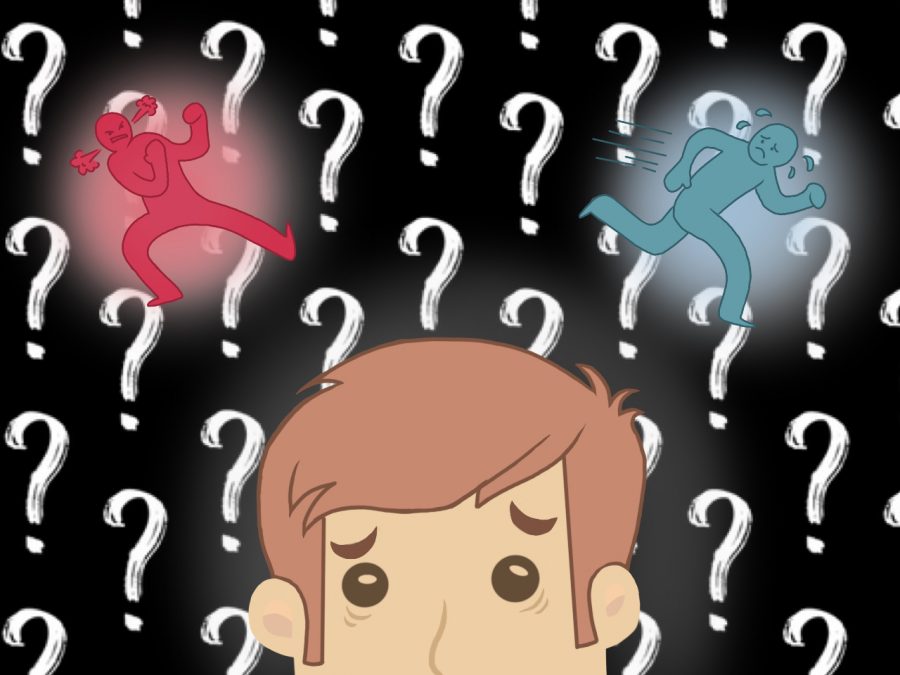Fear on the Brain
April 30, 2018
We all have that one friend who’s completely fearless. They always speak up, love the movie It, dream about roller coasters, and aren’t afraid to try something new. Then we have that friend who’s more shy, who flees from clowns, cries after hearing the word “roller coaster”, and who’d prefer to stay in their comfortable bubble rather than step out of it. How could two people have such different views? Well, it’s not just their choice—it’s also how they’re psychologically wired.
Before explaining how this magic takes place, first you need to know a little bit about the brain. A common term used when the brain is under a lot of pressure is “acute stress”, when the body’s sympathetic nervous system is activated due to a sudden release of hormones. This triggers the fight or flight (or freeze) response. The flight response is when you decide to flee your current situation instead of facing it. The fight response is when you choose to fight the problem instead. The last and rarer response is the freeze response, which, much like its name, means that you freeze up completely and ignore the problem. Any of these problems could be physical, mental, or social.
Now, as you can imagine, a bolder person would more likely choose the fight response. They would much rather face their problem than deny it. Braver people choose to confront their fears. They’re also more likely to be more hopeful and optimistic, and choose to not complain and just get through with what they’re dealing with. Once this gets tiring, they start to challenge themselves, convince themselves they could aim higher, do better. This is how they find the energy to stay pumped for a new horror movie or a ride that just opened up. Bolder people are also more open-minded and open themselves up to all the possibilities and opportunities that lie ahead of them.
Meanwhile, a more fearful person’s brain is the exact opposite. They tend to be more one-sided in their opinions. They close themselves up more and think of the negative outcomes instead of focusing on the positive ones. If given a choice, a scared person would rather run away from their problems instead of face them—otherwise known as the flight response. Fearful people are also more likely to use the freeze response, as that way they won’t be expected to do anything about their problem. This is why they’re more hesitant at trying out new things, and why they think they might “die” if they rode any roller coaster. Even though they may know there is nothing to be afraid of, their flight sense kicks in and they choose to avoid the problem.
Of course, fear isn’t a bad thing. Everyone has to have fear once in a while—it’s how our ancestors grew to understand the bad from good and managed to survive. Someone who is only brave may be more careless and reckless, so it’s important to be cautious.
That still shouldn’t stop you from exploring the world. It may seem easier for some people to try new things, but that doesn’t mean you can’t either. The way your brain’s wired doesn’t mean you can’t change it—it just means it may take a little more time. Step out of your comfort zone every once in a while, even baby steps are valued. Treading into deeper waters only helps you learn to swim. As for the Gryffindors out there-stay brave, but be careful at the same time!

